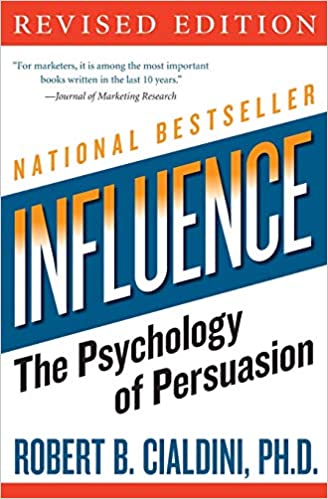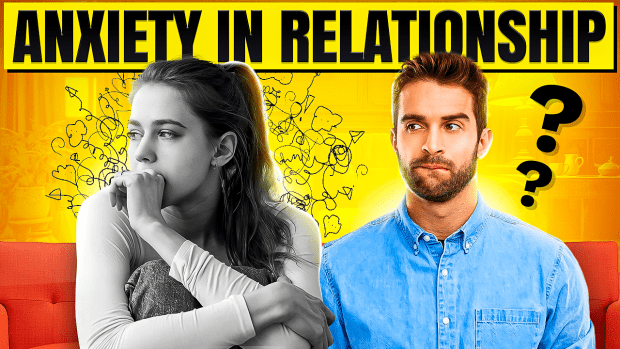Navigating a romantic relationship can be a beautiful and fulfilling experience, but it can also present its fair share of challenges. One of the most common challenges couples face is dealing with anxiety. Whether your partner has been diagnosed with an anxiety disorder or they occasionally experience anxiety, understanding this condition is key to supporting them in the relationship. In this article, we will explore what anxiety is, how it manifests in different individuals, and the impact it can have on your partnership.
Anxiety is a complex mental health condition that affects millions of people worldwide. It encompasses feelings of excessive worry, fear, and unease, often accompanied by physical symptoms like rapid heartbeat and shortness of breath. By gaining an understanding of your partner’s anxiety, you can provide the support they need, fostering a deep connection and trust in your relationship. We will delve into practical strategies to help your partner manage their anxiety, create open lines of communication, and build a strong foundation of empathy and empathy.
Supporting your partner through their anxiety journey requires patience, compassion, and knowledge. Let’s explore how you can become an understanding and supportive ally in their battle with anxiety.

Influence
by Robert Cialdini
⏱ 16 minutes reading time
🎧 Audio version available
What is anxiety and its impact on relationships?
Anxiety is a complex mental health condition that affects millions of people worldwide. It encompasses feelings of excessive worry, fear, and unease, often accompanied by physical symptoms like rapid heartbeat and shortness of breath. While it is normal for everyone to experience anxiety from time to time, for some individuals, it can become chronic and interfere with their daily lives. When your partner is dealing with anxiety, it can have a significant impact on your relationship.
Living with an anxious partner means navigating through their worries and fears. They may have difficulty making decisions, constantly seek reassurance, or avoid certain situations altogether. This can put a strain on your relationship, leading to misunderstandings, frustration, and a sense of isolation. It is crucial to remember that anxiety is not a choice, and your partner is not deliberately trying to make your life difficult. By gaining a deeper understanding of anxiety and its impact, you can provide the support and reassurance your partner needs.
Signs and symptoms of anxiety in a partner
Anxiety can manifest in various ways, and it is essential to recognize the signs and symptoms in your partner. While everyone’s experience with anxiety is unique, some common signs may include excessive worry, irritability, restlessness, difficulty concentrating, and sleep disturbances. Physical symptoms such as muscle tension, headaches, and stomachaches may also be present. Your partner may exhibit avoidance behaviors, such as avoiding social situations or places that trigger their anxiety.
It is important to remember that anxiety can be unpredictable, and your partner’s symptoms may fluctuate. They may have good days where their anxiety is manageable, and bad days where it feels overwhelming. Be attentive to changes in their behavior and mood, and offer your support without judgment. Encouraging open communication can help your partner express their feelings and fears more effectively.
The importance of empathy and understanding
Empathy and understanding are at the core of supporting an anxious partner. It is crucial to validate their feelings and let them know that their anxiety is valid and real. Avoid dismissing their worries or telling them to “just relax” as this can make them feel invalidated and misunderstood. Instead, listen attentively and let them know that you are there for them.
Put yourself in their shoes and try to understand the world through their anxious lens. Recognize that their worries may seem irrational to you, but they are very real for them. By practicing empathy, you can create a safe space where your partner feels heard and understood.
Communication strategies to support an anxious partner
Effective communication is vital when supporting an anxious partner. Here are some strategies to promote open and honest conversations:
1. Active listening: Show genuine interest in what your partner has to say and give them your full attention. Avoid interrupting or offering solutions right away. Instead, let them express their thoughts and feelings without judgment.
2. Validation: Acknowledge and validate your partner’s emotions. Let them know that it is okay to feel anxious and that you understand their struggles. Avoid minimizing their feelings or offering quick fixes.
3. Use “I” statements: When expressing concerns or discussing sensitive topics, use “I” statements to avoid sounding accusatory. For example, say “I feel worried when…” instead of “You always make me anxious when…”.
4. Ask open-ended questions: Encourage your partner to share their feelings and thoughts by asking open-ended questions. This allows them to delve deeper into their emotions and helps you gain a better understanding of what they are experiencing.
5. Avoid blame and criticism: It is important to remember that anxiety is not your partner’s fault. Avoid blaming or criticizing them for their anxious thoughts or behaviors. Instead, offer support and reassurance.
Remember, effective communication takes practice and patience. Be understanding of each other’s needs and be willing to have ongoing conversations about anxiety and how it affects your relationship.
Creating a safe and supportive environment
Creating a safe and supportive environment is crucial when supporting an anxious partner. Here are some ways you can foster a sense of safety and security:
1. Establish routines: Consistency and predictability can help alleviate anxiety. Establish routines and schedules that provide a sense of stability for both you and your partner.
2. Set boundaries: Understand and respect your partner’s boundaries. Give them space when they need it and avoid pushing them into situations that trigger their anxiety.
3. Practice self-care together: Encourage and engage in self-care activities together. This can include exercise, meditation, or engaging in hobbies that promote relaxation and stress reduction.
4. Avoid enabling: While it is important to be supportive, be mindful of not enabling your partner’s anxious behaviors. Encourage them to face their fears gradually and seek professional help when necessary.
Encouraging self-care and seeking professional help
Self-care plays a crucial role in managing anxiety. Encourage your partner to prioritize their well-being and engage in activities that help them relax and recharge. This can include exercise, practicing mindfulness or meditation, getting enough sleep, and maintaining a healthy diet. Remind them that self-care is not selfish, but rather a necessary part of their overall mental health.
In some cases, professional help may be necessary to manage anxiety effectively. Encourage your partner to seek therapy or counseling if their anxiety is interfering with their daily functioning. A mental health professional can provide valuable tools and techniques to manage anxiety and help your partner develop coping strategies.
Building a strong support network
Supporting your partner through their anxiety journey does not mean you have to do it alone. Building a strong support network can be beneficial for both you and your partner. Encourage them to connect with friends, family, or support groups where they can share their experiences and find understanding. It can also be helpful for you to confide in trusted friends or seek support from a therapist or counselor to navigate your own emotions and challenges.
The role of therapy in managing anxiety in relationships
Therapy can play a significant role in managing anxiety in relationships. Couples therapy can provide a safe space for both partners to explore their feelings, improve communication, and develop strategies to support each other. Individual therapy can also be beneficial for the anxious partner to work through their anxiety and develop coping mechanisms.
Therapy offers a neutral and supportive environment where both partners can learn effective strategies to navigate anxiety in the relationship. It can provide valuable insights, tools, and techniques to foster a healthier and more resilient partnership.
Related: The Me, Myself, and I Syndrome: 5 Red Flags of a Self-Centered Personality
The power of love and understanding in overcoming anxiety together.
Anxiety is a complex mental health condition that affects millions of people worldwide. It encompasses feelings of excessive worry, fear, and unease, often accompanied by physical symptoms like rapid heartbeat and shortness of breath. Anxiety can be triggered by various factors, such as past traumas, genetic predisposition, or ongoing stressors in a person’s life. It is important to remember that anxiety is not a choice or a character flaw – it is a legitimate medical condition that requires understanding and support.
Anxiety manifests differently in each individual, and it is essential to recognize the unique ways in which your partner experiences it. Some people may have generalized anxiety disorder, which means they experience excessive worry about various aspects of their life, while others may have specific phobias or panic disorder. Understanding your partner’s specific anxiety triggers and symptoms can help you provide the support they need.
What Is Snapreads?

With the Snapreads app, you get the key insights from the best nonfiction books in minutes, not hours or days. Our experts transform these books into quick, memorable, easy-to-understand insights you can read when you have the time or listen to them on the go.
